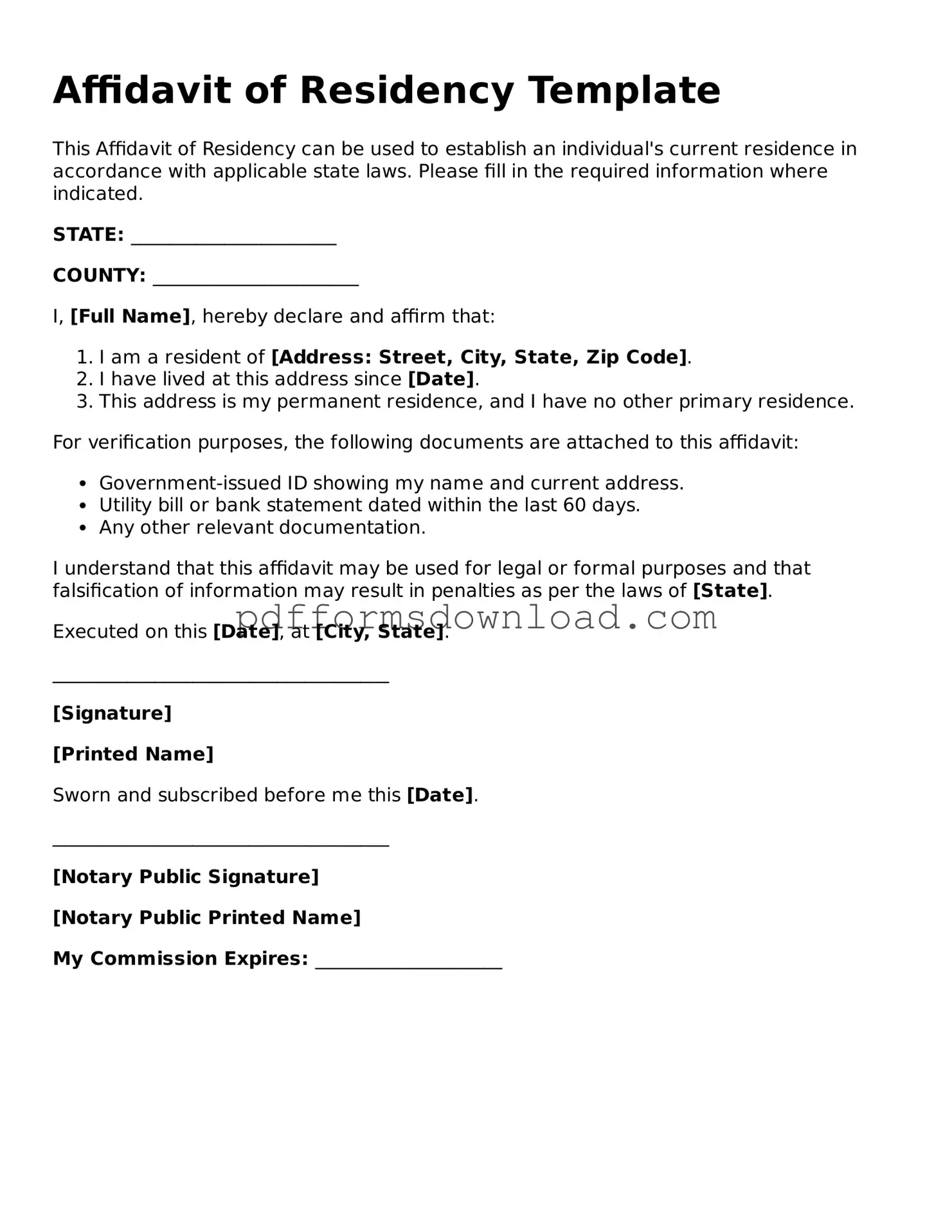What is an Affidavit of Residency?
An Affidavit of Residency is a legal document used to confirm an individual's current residence. It is often required for various purposes, such as enrolling a child in school, applying for government assistance, or verifying residency for legal matters.
Who needs to complete an Affidavit of Residency?
Typically, anyone who needs to prove their residency may be required to complete this form. This includes parents enrolling children in schools, individuals applying for public benefits, or those involved in legal proceedings where residency is a factor.
What information is required on the form?
The form generally requires personal information such as your name, address, date of birth, and the duration of your residency at the specified address. Additional details may include the names of other household members and the purpose for which the affidavit is being completed.
How do I complete the Affidavit of Residency?
To complete the form, fill in the required fields with accurate information. Be sure to provide any necessary supporting documents, such as utility bills or lease agreements, to validate your residency. After filling it out, sign and date the document in the presence of a notary public if required.
Is notarization required for the Affidavit of Residency?
Notarization may be required depending on the specific use of the affidavit. Many institutions or agencies will ask for a notarized document to ensure authenticity. Check with the requesting party to confirm their requirements.
Where can I obtain an Affidavit of Residency form?
You can typically obtain an Affidavit of Residency form from local government offices, schools, or online through various legal document websites. Ensure you are using the correct form for your specific state or institution.
How long is the Affidavit of Residency valid?
The validity of the affidavit can vary based on its purpose. Some institutions may require a new affidavit each school year, while others may accept it for a longer period. Always check with the entity requesting the affidavit for their specific guidelines.
What should I do if my residency changes?
If your residency changes, you must complete a new Affidavit of Residency reflecting your new address. This is essential to ensure that any related processes, such as school enrollment or legal matters, are based on your current information.
Can I use the Affidavit of Residency for multiple purposes?
Yes, an Affidavit of Residency can be used for multiple purposes, as long as it meets the requirements of each situation. However, it's advisable to check if specific institutions require separate affidavits for different applications.
What happens if I provide false information on the affidavit?
Providing false information on an Affidavit of Residency can lead to serious consequences, including legal repercussions. It's crucial to ensure that all information is accurate and truthful before submitting the document.

